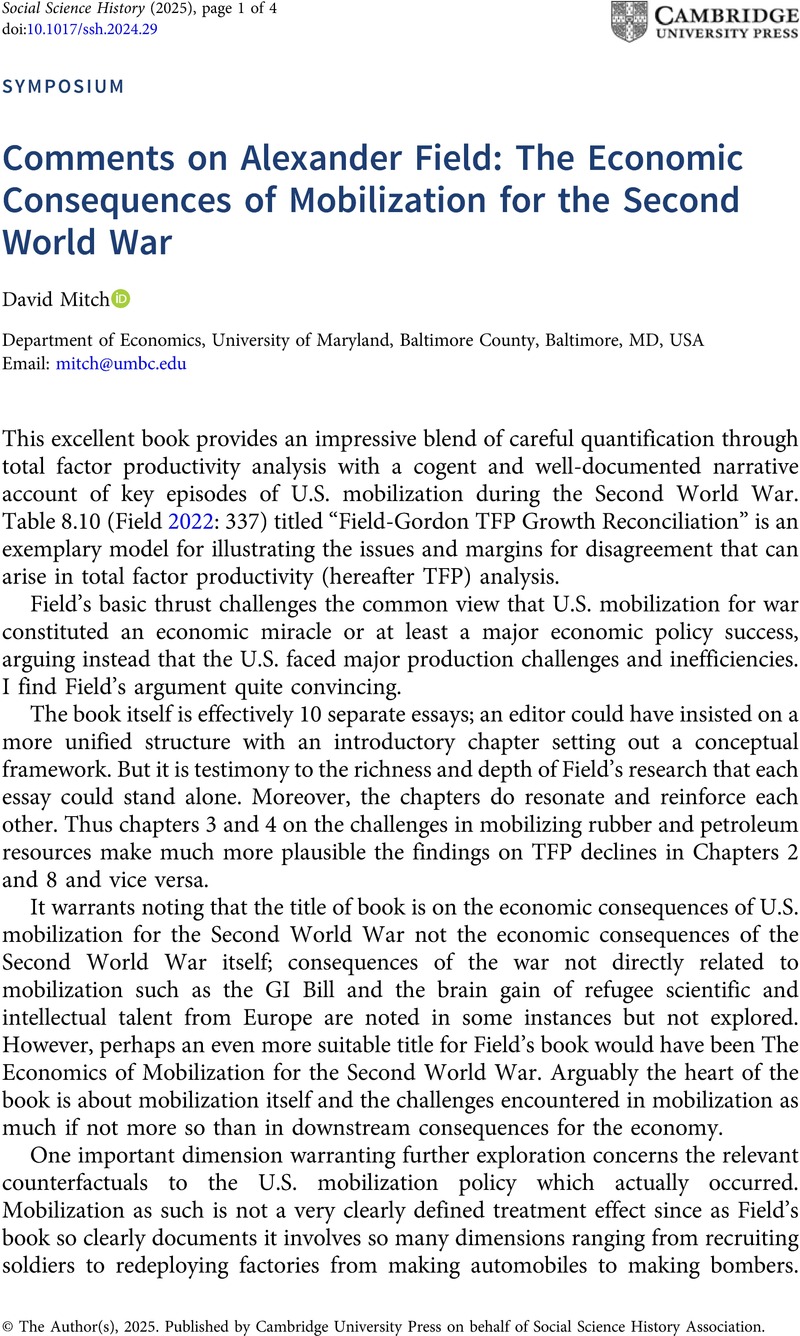Mowery, David C., and
Rosenberg, Nathan (
2000) “Twentieth-Century technological change,” in
Engerman, Stanley L. and
Gallman, Robert E. (eds.) The Cambridge Economic History of the United States, Vol. III. Cambridge: Cambridge University Press: 803–925.
Google Scholar 